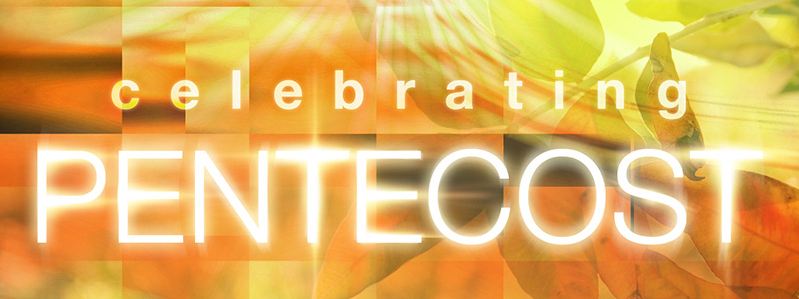
The Pentecost event mirrors the Old Testament Jewish festival of Shavuoth, meaning, literally, "fiftieth" with significant reason. Shavuoth commemorated the fiftieth weeks of the harvest, or "first fruits," in the form of a harvest offering where sacrifices were made into a "tribute of a free-will offering (Deuteronomy 16:9-11)." In the same way, Pentecost marks the fiftieth day since Christ's earthly stay following the crucifixion. How fitting that the New Covenant term would so clearly portray the love offering made by Christ's Sacrifice---and an ensuing, generous pouring out of the Spirit, our Comforter and Help.
As the Holy Ghost came upon believers in flaming tongues of fire, thousands were converted to Christ. What a perfect opportunity, then, to pursue unity which centralizes upon Christ and the basic tenets, but also relishes and revels in minor differences of style and understanding. This was precisely the joyous occasion that Pentecostals and Roman Catholics experienced---and continue to experience---this Pentecost season.
Bishop Brian Farrel explained the event, "While some Pentecostals have an "exclusivist and anti-ecumenical, sometimes especially anti-Catholic" attitude, many others focus on shared faith in Jesus and a shared experience of the outpouring of the Holy Spirit.
The Pope is said to have expressed the desire for "a jubilee that is as inclusive as possible," spanning across various denominations and worshiping together.
Bishop Farrel adds on a humble note that the sectarian differences have much to learn from each other, and describes the Roman Catholic gravitation to the charismatic movement in recent years.
"Where the Catholic charismatic relationship with Pentecostals is positive, it provides an example of "spiritual ecumenism," which is less about agreement on theological points and more about common prayer. But the relationship also is an example of what is called 'receptive ecumenism,' the process by which divided Christians recognize that each other has gifts they can benefit from, too."
"Catholics have much to offer Pentecostals," Farrel humbly asserts, "starting with the liturgy and its mystery and sense of sacrifice, Martinez said. But also, with such a strong focus on reading the Bible, Pentecostals also benefit from the writings and reflections of the early church theologians. They are an inestimable treasure for all Christians,"
Another clerical head attributes praise to the Pentecostal "love for the Holy Spirit, Who remains the great unknown for Catholic theology."
We can learn much from this beautiful revelation, and it is my hope that such display becomes, without compromise, a commonality.
“When you strip it of everything else, Pentecost stands for power and life. That’s what came into the church when the Holy Spirit came down on the day of Pentecost.” David Wilkerson






